What is a curator? an art curator? I get this question a lot. And I mean a LOT.
I get it. There is the place (museum or else), the artist, what does a curator add to the equation?
So I am going to try to explain it quite simply. Even though it is quite a complicated title, position to wrap your head around.
Basically, for a quick answer:
- A curator creates exhibitions, even solo ones.
- He/She choses artists, artworks, subjects, writes texts, invites others to write texts.
- He/She can be invited by an institution or can present his work to an institution so they can work together on the exhibition.
- A curator can also be part of a collective, a group, working with other curators to create an exhibition.
Now let’s get deep.
Biennale d’art contemporain 2017, Lyon – France
How does the curator create an exhibition?
A curator does research on many things to create and organize an exhibition. They are always visiting exhibitions, biennales, museums, artists’ studios, etc. Meeting with artists, museum’s teams, theorists, etc.
Does it pay well?
Like many of the art job. No. Or at least for the majority.
Most of the time they also have another job. Some of them are art critic, they write for art media about artists or movements or any subjects. Which can also means writing a book, or collaborating on a book.
They can also have another job at an art centre, a gallery, any art-related job really. Or even non-art related.
Can I be a curator?
So yes anybody can be a curator. However it is a tough job.
You have to know many artists, art history, philosophers, all that stuff. And know it really well so you can write about it, present it, analyse it, sometimes even stating against it.
An artist can also be a curator. (I feel like I just lost you)
So artists are inspired by many subjects, research, and they also admire some fellow artists as well. In France a famous artist who is also recognized as a curator is Mathieu Mercier. He won the Marcel Duchamp prize as an artist and has also organized many exhibitions as a curator.

Why do it?
Well it is rather interesting. Remember in school when you had to do a presentation on something? You needed to do research and find an organization in your notes. Find out what were the interesting parts to talk about. If you did not like this I strongly suggest finding another career choice. Or maybe you did not like it because you couldn’t chose the subject? A curator can create an exhibition on any subject, something that he/she likes, doesn’t, is revolting, funny, and the list goes on.
So the curator picks the subject, the artists, that’s it?
The curator works with both the artists and the direction of an institution on the show. Which also includes: title, presentation, program of events, writing texts for the catalog, etc.
So it is not just a few things, it is about the whole project with all the tiny aspects of it. Depending the size and organization of the institution where the exhibition created by the curator is presented, he/she may have the support of the team working there. The curator will not have to deal with all the logistics aspects of the show, only the creative one
I though you had to work in a museum?
A Museum Curator is a different position. They also organize and create exhibitions but they are attached to an institution. They usually do a lot of research and can work on an exhibition many years before presenting it in the museum. They are also specialized in a domain and are experts on this specific collection for the museum. They care for it. And all of its administrative aspects as well.
In smaller institutions, museums in the different regions, the curator is also a director. Their role is much larger than creating exhibitions. In France there is a national exam that you need to take if you want to become a museum curator. Once passed, depending on your ranking, you are given a position (if there are enough available).
Being a curator in an the contemporary art world means you are on your own, as a freelancer.
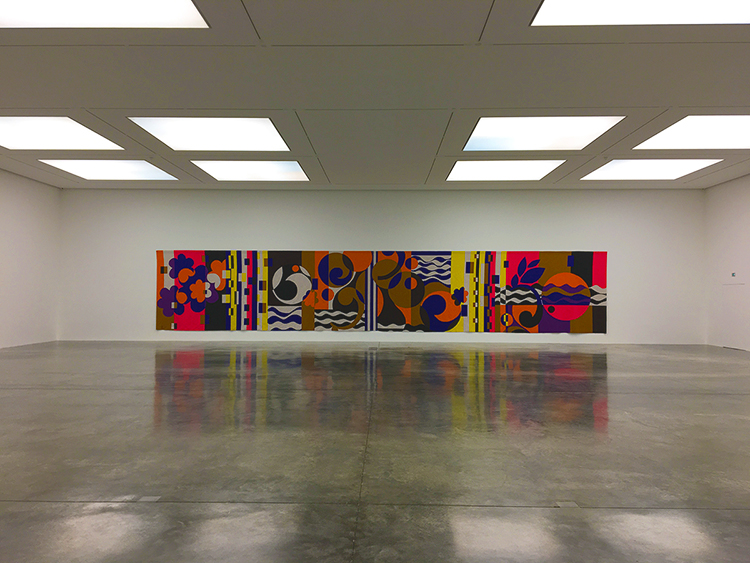
So there you have it. This is what a curator does.
One last info, when working in the art world (and usually no matter your position) you are always looking to learn more. See more artists, know more. To me it is always a fine line between someone’s true interest and the pressure we get in this field to be on our A-game. On week nights we go to openings, on weekends we go to museums and galleries. When you read, it is about art or philosophy.
Basically it is like school never ends and “practice makes perfect”. The more you do it, the more you get better at it. (or at least that is what I tell myself at night…).
I hope you get it now. And if not tell me in the comments,
I’ll try to explain differently (or better).
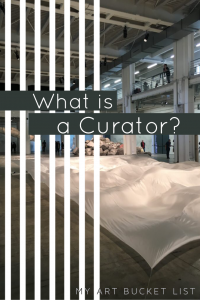
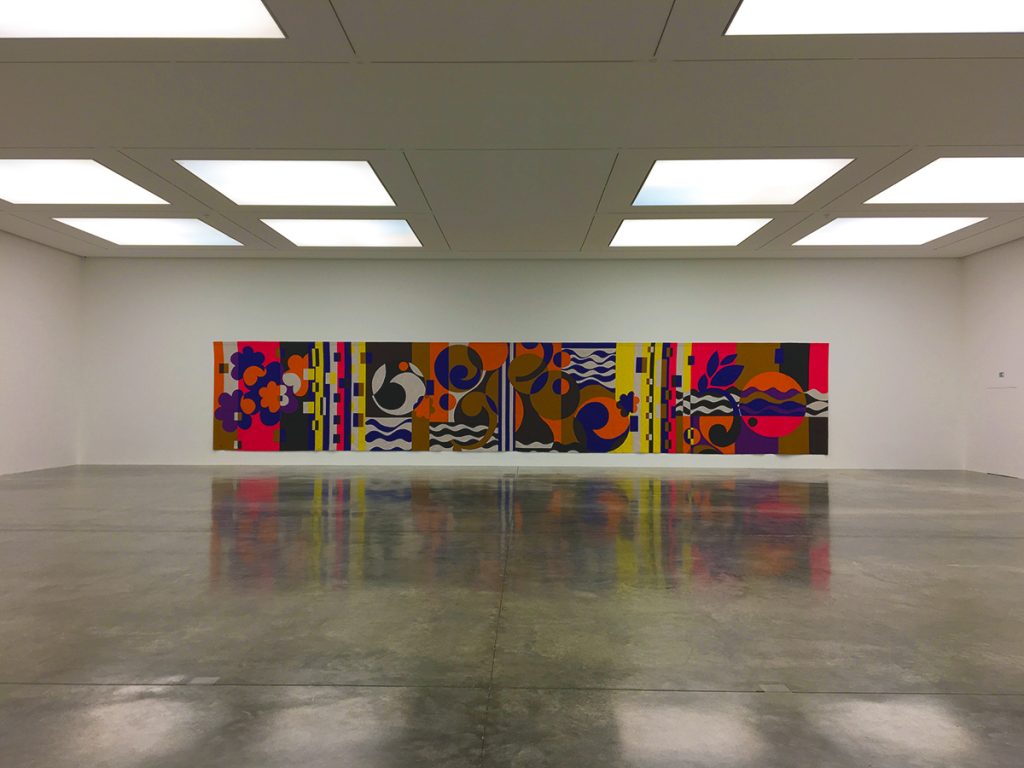
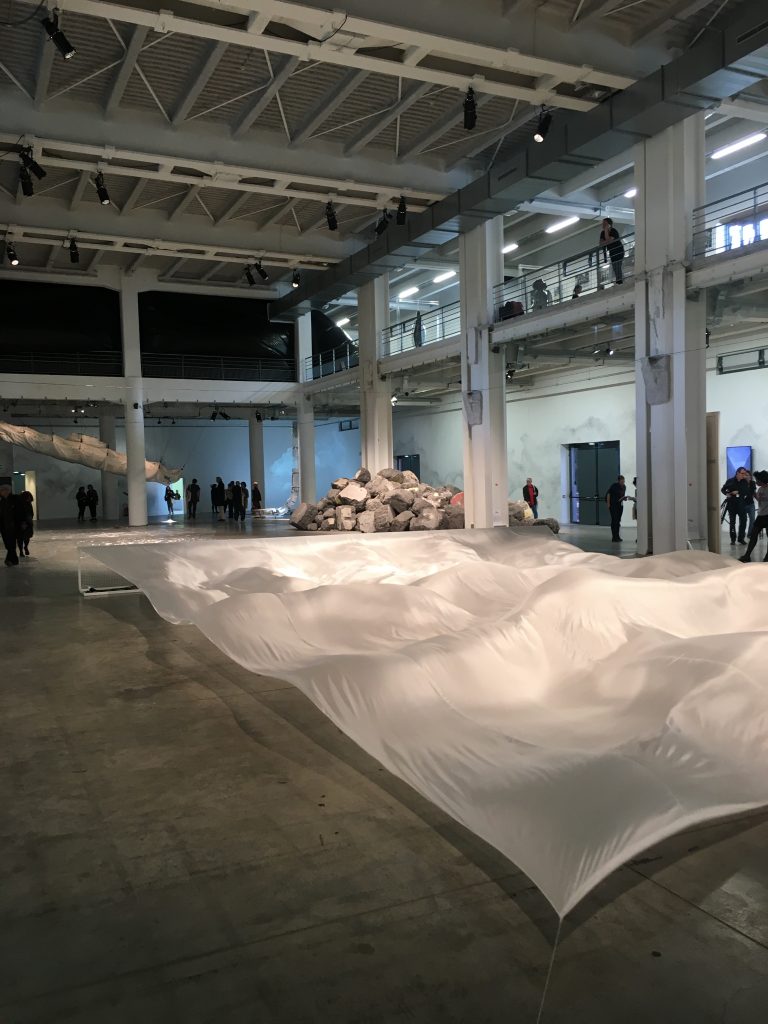
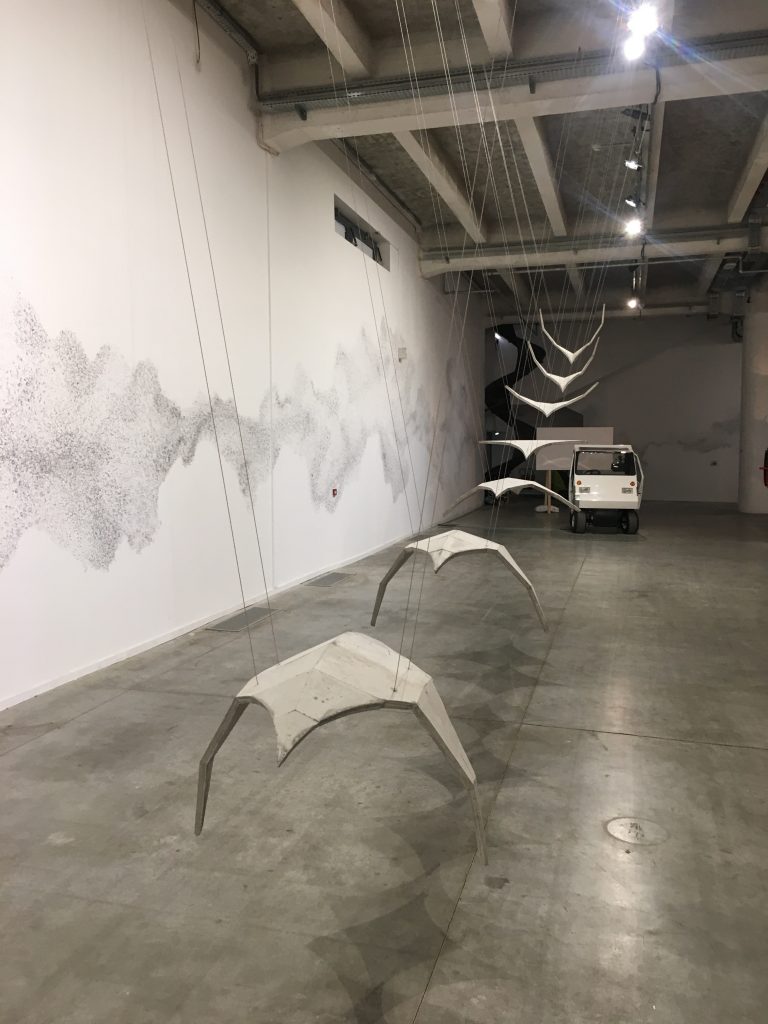
Hi is there particular education or diploma that helps for this position ?
Hi, the best I would say would be to study art history or visual arts. Nowadays there are many master’s degree specialised in curation and curatorial studies. And of course start working on projects!
Thank you for all these precisions about “who does what”